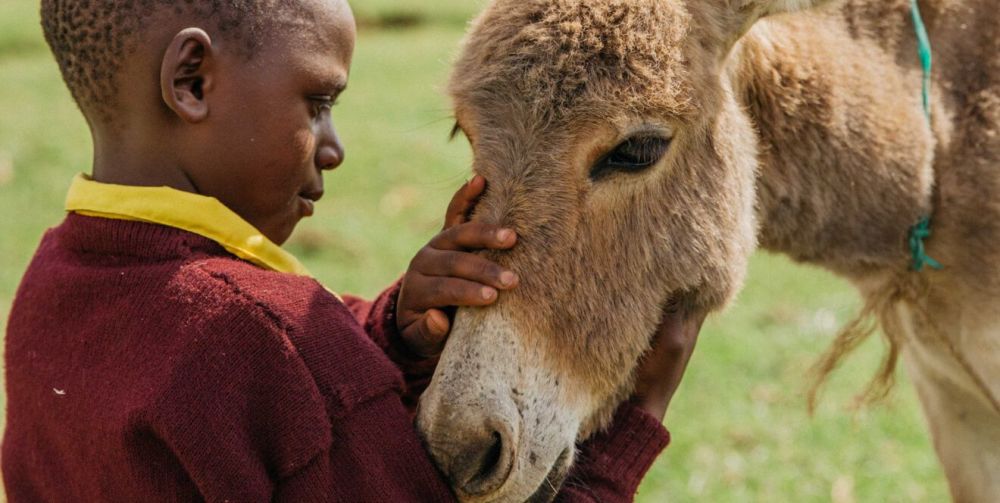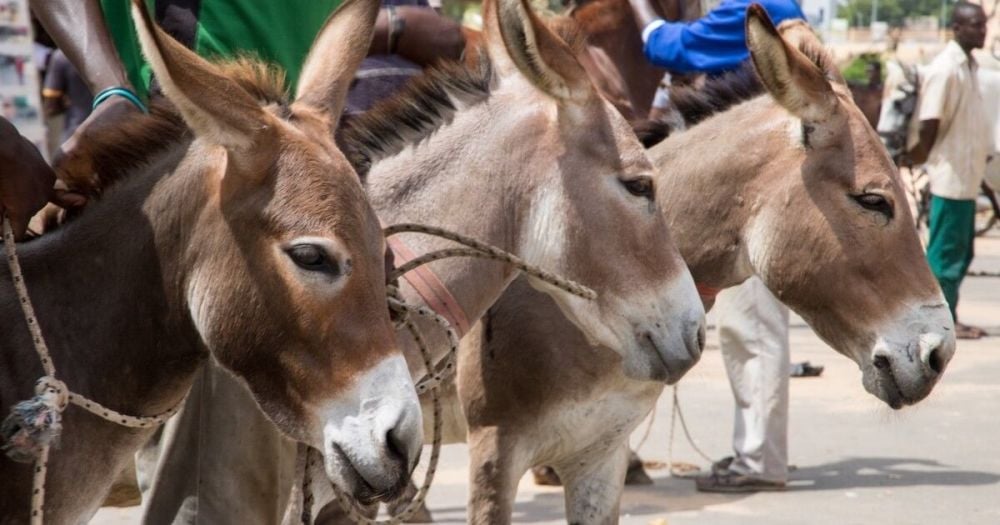The Donkey Skin Trade
Earlier this summer, there was devastating news from Africa. Kenya has reversed the ban on the trade in donkey skins. The donkey skin trade is growing It is the most serious threat donkeys have ever faced. And the trade is worldwide. Kenya has been at the epicentre of the trade, but as the Brooke teams began to monitor and investigate the trade outside Kenya, they quickly found that donkeys were being traded for their skins across Africa. And it gets worse. Brazil opened up the trade in 2017. Egypt increased its export in 2018. Pakistan may reverse the current ban on the trade. “Donkey populations in China have collapsed by 76% since 1992. Since 2007 donkey populations have declined by 28% in Brazil, by 37% in Botswana and 53% in Kyrgyzstan.” (The Donkey Sanctuary) The Brooke say that 100,000 donkeys were slaughtered in 2017 and 360,000 donkeys were slaughtered in 2018. A big drop in India’s donkey population is suspected due to the skin trade – which has many implications for animal welfare. The Brooke saw an outbreak of equine flu last year in West Africa. It killed 60,000 donkeys in just one country. And the World Organisation for Animal Health (OIE) believes that it was linked to illegal transport of donkeys across borders. Why are donkey skins in demand? Some are killed for their meat, but increasingly they are killed so that their skins are used as an ingredient in a traditional Chinese medicine called ejiao. It’s thought to improve blood circulation and it’s used as a tonic by people with anaemia, low blood counts or reproductive. The donkey skin trade is a terrible trade The donkeys are corralled very close to each other and they are killed in front of each other which adds to their stress and fear. Donkeys are dragged and beaten to the point of slaughter. The World Veterinary Association has produced a video with the Donkey Sanctuary. It shows the terrible suffering donkeys face and please do not watch it if you are sensitive or get upset. I have included many facts from the video here so that you can get an idea of what is happening without seeing the video. The important thing is that we all act to help. Links have been discovered between the donkey skin trade and wildlife crime, as some traders offer donkey skins for sale online on platforms that are also selling illegal wildlife products such as rhino horn, ivory and pangolin scales. Under donkey skins, tiger skins are sometimes found. Please help donkeys today and sign these two petitions:
Tell Eastern African Authorities: Ban The Donkey Skin Trade. Sign the Official Petition Now.
Donkeys matter The trade itself is incredibly cruel. And people suffer as well, as a result of it. Millions of people in the world’s poorest areas rely on their donkeys to help them earn a living. The money people get from the help of their donkeys enable them to feed their families and to pay for their children’s schooling and build a home. Their donkeys transport water and goods and helping them farm with ploughing. The Brooke say that in Kenya, a donkey can generate $2 a day – but selling them can generate $70. The cost of buying a donkey has risen, making it impossible for many families to buy a donkey if theirs has been stolen. The Donkey Sanctuary say that in Ethiopia, a donkey can generate $330 a year which is a huge amount for a family in that country. Most donkeys have a working life of 20 years so this shows the impact the loss of a donkey can have on a family. World Leaders: Demand a Global Ban on the Donkey Skin Trade
What can we all do about? The Donkey Sanctuary has spent the last five years disrupting the trade, the aim being to protect as many donkeys as possible from being sold, trafficked or stolen for slaughter. Researchers, vets, welfare advisers, campaigns teams, advocacy teams are working hard to strive for a world where donkeys and mules live free from suffering and their contribution to humanity is fully valued. The Donkey Sanctuary has joined forces with the World Veterinary Association to highlight the skin trade. Please sign these two petitions: World Leaders: Demand a Global Ban on the Donkey Skin Trade
and spread the word about the donkey skin trade.
Back in 2021, Kenya legalised donkey meat and hide as there was an increasing demand from China. Unfortunately, that’s meant that the value of an adult donkey has shot up. It’s also led to a networks of skin smuggling hired gangs who steal donkeys. In February 2020, the Kenyan Agriculture Ministry imposed a ban on the slaughter and sale of donkey meat. There were concerns about reducing numbers. Protests from farmers and animal groups had an impact. Unfortunately, donkey abattoir owners went to court. Job losses and lost revenue were reasons for the ban to be lifted. And sadly the Judge made a bad decision. He said the government hadn’t defended the case well enough. So we must put the pressure on. Those abattoir owners are forgetting all those local people who depend on their donkeys and for whom life is incredibly difficult when donkeys are stolen to meet demand. They certainly aren’t thinking of the donkeys. It’s up to the rest of the world to put the pressure on Kenya and all countries where the donkey skin trade is happening to make it stop – and to tell China to stop buying wildlife products for traditional medicine.
Please sign: World Leaders: Demand a Global Ban on the Donkey Skin Trade
Please sign: Tell Eastern African Authorities: Ban The Donkey Skin Trade. Sign the Official Petition Now.
|

